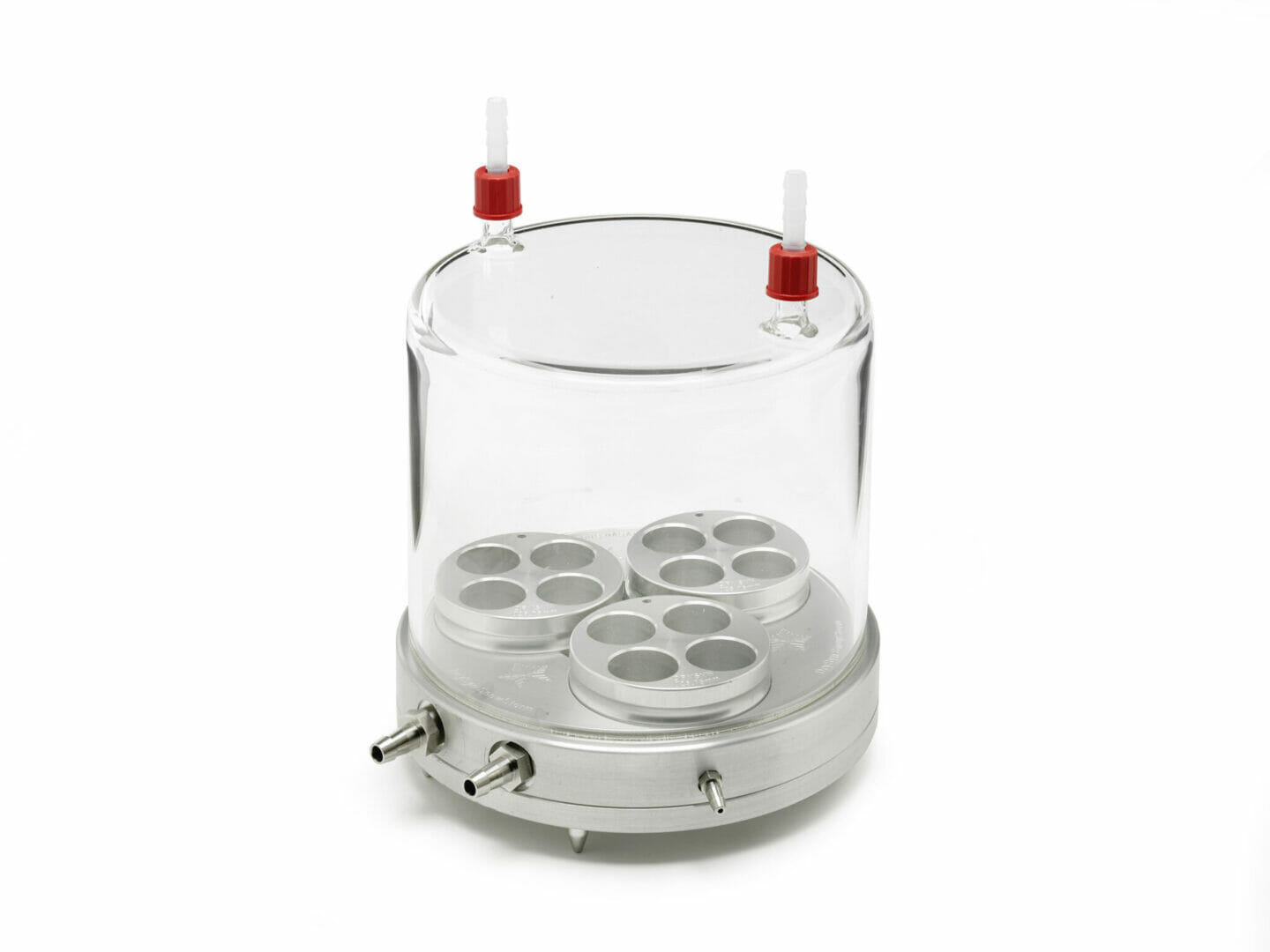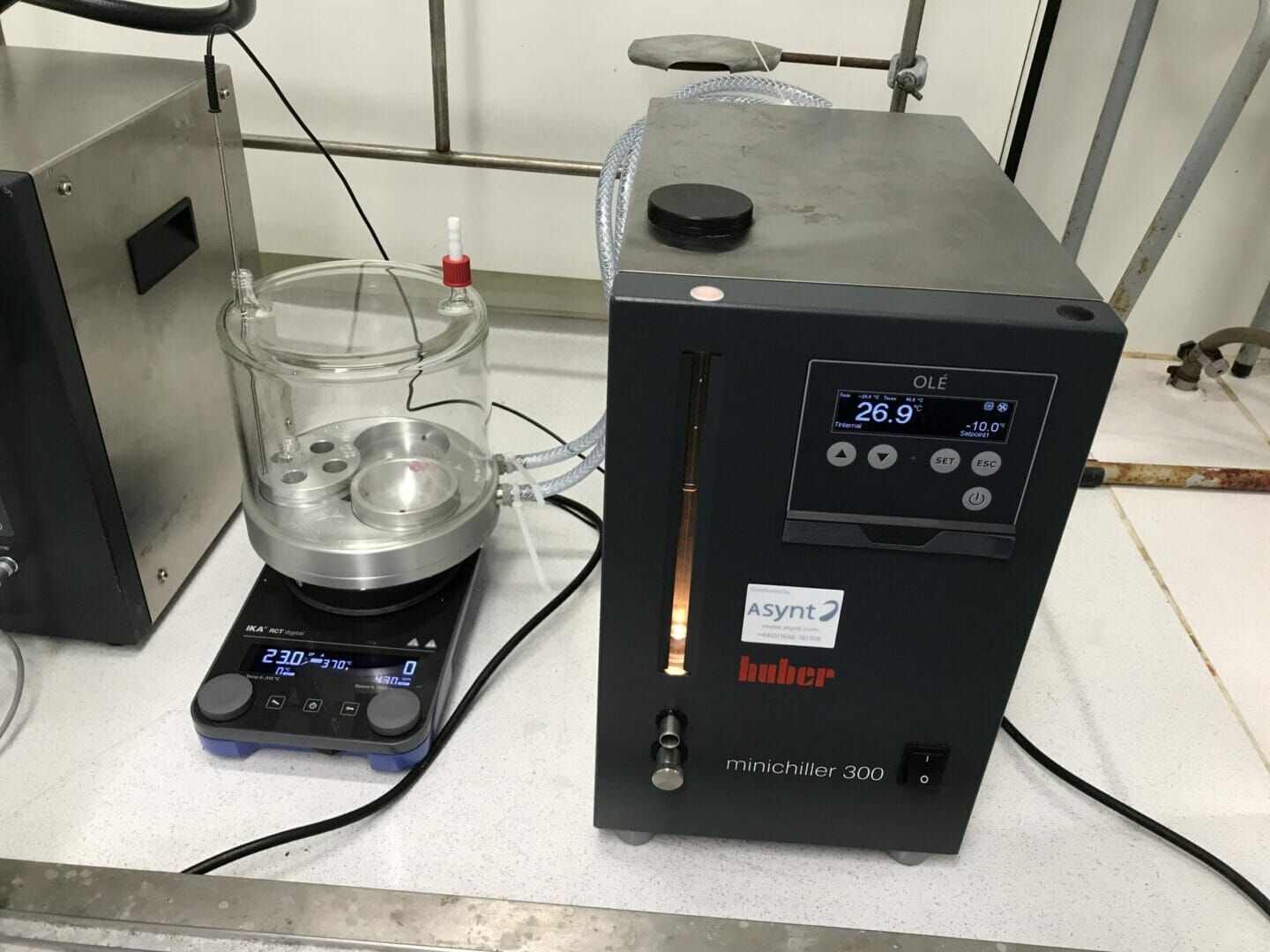Asynt reports upon the synthesis of novel Gold (Au) organometallic complexes for use by researchers in the School of Chemistry at the University of Bristol (UK) achieved using a DrySyn SnowStorm Reactor and DrySyn Splitter Manifold.
The aim of the research being undertaken at the University of Bristol was to create new Au(I) organometallic complexes for use in gold-mediated cross-coupling reactions. Subsequent transmetallation with an organozinc reagent and reductive elimination led to the formation of products with new C-C bonds. The use of gold in these transformations has been shown to offer advantages over the traditionally used Palladium (Pd(0)/Pd(II)), including increased biocompatibility, improved functional group tolerance and better price stability.
During the described research it was discovered that the success of the transmetallation step was highly dependent on the temperature at which it was undertaken. Researchers at the University of Bristol invested in a DrySyn SnowStorm Reactor fitted with DrySyn vial inserts to give them the capability of performing up to 12 low temperature reactions in parallel at a reliable and consistent temperature. By connecting the SnowStorm Reactor to a DrySyn Splitter Manifold the group were also able to utilize the recirculating chiller with other equipment in the lab, maximizing their use of resources.
Mr. Jamie Cadge, a PhD researcher in the Russell Group at the University of Bristol School of Chemistry commented “Synthesis of gold complexes and performing multiple gold-mediated cross-coupling reactions is challenging chemistry. We found that certain steps required stable, low temperatures to be successful. Making use of three vial inserts in the SnowStorm Reactor meant that we could perform multiple reactions at the same time. Consequently, we are able to screen varying conditions for these cross-couplings with different substrates. The recirculating chiller unit and manifold supplied with the DrySyn SnowStorm has also allowed us to improve the environmental impact of our lab we as are no longer reliant on the use of multiple condensers which use tap water or dry ice-cold fingers”. Mr. Cadge added “I would recommend the DrySyn SnowStorm Reactor to other researchers as it enables multiple reactions to be reliably performed at consistent low temperatures in parallel.”
The DrySyn SnowStorm Reactor from Asynt offers an attractive solution for scientists looking to undertake low-temperature chemical reactions and studies (-30 to +150 °C). Unlike traditional reaction cooling methods, including ice and salt-ice baths, accurate and prolonged temperature control on a DrySyn SnowStorm is regulated by an external thermostatic circulator. The use of such a temperature control system not only eliminates the risk of temperature fluctuations due to perishable coolants but can also improve your labs sustainable use of resources.
For further information on the DrySyn SnowStorm Reactor please visit https://www.asynt.com/product/drysynsnowstormreactor/ or contact Asynt on +44-1638-781709 / [email protected].
To learn more about this research at the University of Bristol please visit https://research-information.bris.ac.uk/en/publications/oxidative-addition-of-alkenyl-and-alkynyl-iodides-to-a-ausupisup-
Asynt is a leading supplier of affordable products, consumables and services for chemists in industry and academia. With a staff of trained chemists – Asynt can draw upon this in-depth applications knowledge to provide a high level of customer support for its DrySyn Heating Blocks, Controlled Lab Reactors, Synthesis Tools, Evaporators, Circulators, Temperature Control Systems, Vacuum Pumps and Lab Safety Equipment.





